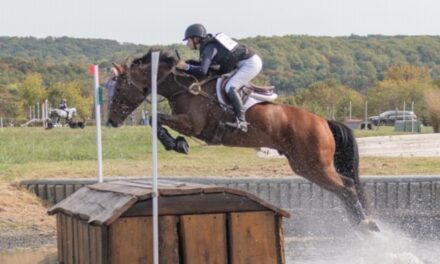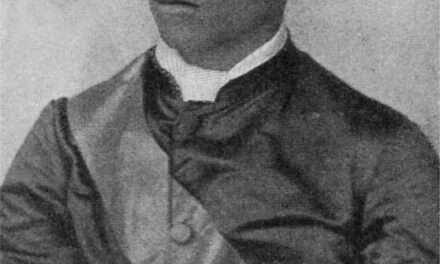First published in the June 2020 Equiery
When Maryland Governor Larry Hogan declared a State of Emergency in March due to the COVID-19 pandemic, many equine businesses were forced to shut down. Although feeding and caring for horses and other livestock are considered “essential” under the Governor’s “Stay at Home” orders, many businesses reduced their staff or closed altogether.
The Maryland Horse Council and Equiery staff have been following the pandemic on the local, national and global scale and have been advocating for you, our equestrian community. In order to better serve this community, MHC issued a survey asking business owners to share their COVID-19 experiences.
Although we temporarily closed the survey as the June issue was being prepped for print, we are reopening the survey and ask readers to take a few minutes to fill it out. For those who have already done so, please send us updates as needed. To take the survey, click here: https://us4.list-manage.com/survey?u=2fe08f04b40870ac936d1232e&id=3ae3b2a474
MHC will be using this information to continue to represent Maryland’s equine industry during the state’s COVID-19 recovery period as well as to help shape future legislative initiatives.
Our Community
Over the course of three weeks, 123 equine businesses responded to our survey. The majority of businesses responding were those that offer riding lessons and training followed by boarding facilities. Horse sales, clubs and associations, competition facilities, veterinary and farrier care, horse rescues, and therapeutic riding centers were also represented. Other responses came from contractors and barn builders, architects, judges, breeders, photographers, jockeys and more.
Nearly all counties in Maryland were represented with Montgomery County leading the pack with 18.7% of responses. Anne Arundel, Howard and Frederick Counties each comprised 13.8% of our survey participants. Outside of Maryland, we had one participant from Virginia and one business located in Washington, DC, respond to the survey.
Employees & Staff
In order to find out just how many people are affected at these businesses, we asked how many employees work for each business as well as how many have been furloughed due to COVID-19.
A plurality of businesses represented have a sole owner who is the only employee (44.7%). A slightly smaller percent (40.7%) of responders employ one to five additional staff. Businesses with six to ten employees were represented by 8.1% while those with more than ten employees were at 6.5%.
Eighty-five businesses reported that they did not have to downsize due to COVID-19 restrictions. Of those who did not downsize, 47 of them were sole proprietors. Thirty-eight businesses indicated they did have to reduce their staff numbers. Over 90 employees have been temporarily laid off and many clubs, associations and non-profit organizations and rescues are not able to have volunteers come to their facilities. Several business owners also reported that they had to reduce the hours of those essential staff needed for day to day horse care and were doing most of the work themselves.
In total, 89.4% of the businesses in our survey reported that COVID-19 has had a negative impact on their monthly business income.
Business Adjustments
Even if a business is considered essential, the Governor issued several orders intended to protect employees and stop the spread of the virus. One hundred and seventeen business owners reported that they had to adjust their daily operating procedures; six stated they had no changes.
Several lesson facilities reported that once lessons were suspended, they reduced staff to essential feeders only. A few decided to turn lesson horses out to pasture in order to save money on bedding and labor while others attempted to keep lesson horses in light work. Most lesson barns reported that their monthly income has dropped considerably due to not being able to teach.
The majority of boarding facilities that responded reported that they closed their doors to boarders. Most of those stated they only allowed boarders on the property if there was an emergency related to their horse. Although these facilities did continue to receive monthly income from their boarders, some reported that day-to-day workload increased due to downsizing staff. Some boarding facility owners reported that they began to offer additional services to their clients such as grooming free of charge, while others put together grooming and training packages for their boarders.
A few boarding facilities remained open to boarders, but kept everyone on a tight schedule to reduce the number of people on the property at any given time. Several boarding facility owners also reported that they were not taking on any new boarders during the shut down.
Competition facilities shut down completely as the USEF suspended all competitions for much of March, and all of April and May. Some of these facilities did have income through boarding but those that only host competitions reported no income since the State shut down.
With live racing in the state also shut down, most trainers in our survey reported keeping their horses in work in order to keep employees hired. Exercising horses for the benefit of their health is considered essential.
While veterinarians and farriers are also considered essential, several reported changing the way they interact with clients. Dr. Judy Tubman of Kent Veterinary Center in Kent County initiated curbside check-in for horses coming to the clinic. Dr. Tubman added that when treating horses at other facilities, “We ask that owners not be in the barn at the same time if possible.”
COVID-19 Relief Funds
The Maryland Horse Council has been active throughout the COVID-19 crisis in bringing the latest information related to relief funds and even held a town hall webinar with experts explaining the various programs available. In our survey, we asked if business owners had applied for a variety of state and federal grant and loan programs, such as usda business loans.
We found that 29.3% of the business owners in our survey did not apply for any grant or loan programs. Most of those who did not apply for relief funds stated they attempted to apply but programs were closed too soon. Others said their businesses made too much money to qualify or had troubles qualifying due to being the sole owner/employee. Some businesses stated that they would look to their banks for a loan similar to this Commercial Loan business specialists offered in order to get back on their feet.
Thirty-nine business owners applied for the Small Business Administration’s Paycheck Protection Program (PPP) with 25 stating they have been approved. Thirty-three business owners applied for Economic Injury Disaster Loans (EIDL) with only 10 being approved.
Twenty-four business owners applied for funds through the Maryland Small Business COVID-19 Emergency Relief Grant Fund with six receiving approval. Ten business owners applied for the Unemployment Insurance Work Sharing Program with four being approved.
Those not approved for any of the above programs stated they were told they did not meet qualifications or had not heard back at the time they filled out the survey.
Fewer than 10 business owners in our survey applied for one or more of the following programs: Maryland COVID-19 Emergency Relief Manufacturing Fund, COVID-19 Layoff Aversion Fund, Maryland Small Business Development Financing Authority and Non-Profit Interest-Free Micro-Bridge Loan Program. None of those who applied to these programs received funding.
In addition to the programs listed in our survey, some business owners applied to county level programs and/or for private organization grants. Some examples are: MARBIDCO (a statewide quasi-public development corporation established by the State of Maryland), Hello Alice, Carroll Small Business, Montgomery County Emergency Relief Fund and the Equestrian Aide Foundation. Most of those who applied for these grants and loans received funding.
The majority of those who applied for relief funds found the forms and application process very difficult (52.6%) while 34.2% felt it was easy and 13.2% said the application process was somewhat difficult. About 4.9% hired a professional to fill out various applications for their business.
The COVID-19 Experience
The last question we asked in our survey was for business owners to write any additional comments about their COVID-19 experience. Below is a sampling of the additional information that Maryland business owners wanted to share.
“I could have conducted business safely but shutting down non essential [businesses] prevented me.” – Carolann Sharpe of Black and White Cookie, LLC (Carroll County)
“We race Standardbreds and they could be racing without the fans. I don’t understand why we are not allowed to race when we are wiling to follow the guidelines. The racetracks and the government are missing out on lots of funds from the online gambling. Without the casinos, this is so important. I think the government forgets that people with animals still have to feed and care for them all the time.” – Dolly Callahan of Breakaway Racing (Talbot County)
“I wish there had been small business loans for actual small businesses that were not given to the bigger companies. Many of us won’t survive this.” – Christie Craven of De Novo Farm (Anne Arundel County)
“It has been especially difficult having a school aged child at home.” – Lisa Martin of Out of the Box Stables (Montgomery County)
“Adoptions are way down because of isolation and few are inquiring about future adoptions.” – Debbie Ober of Chincoteague Pony Rescue (Caroline County)
“I have such a small census of boarders (one owner with two horses) that the effect [of COVID19] has been minimal.” – Joseph Michael of Whistling Hill (Washington County)
“While this has been hard on everyone, I often wonder what the horses are thinking with not being able to see their owners and having a normal regular environment like they are used to. We are looking forward to opening our doors back up to our boarders slowly so they can enjoy their horses again.” – Shari DeMino of Chesapeake Dressage Institute (Anne Arundel County)
“Not being able to access my horses during full shut down was incredibly hard but I understand the need.” – Beth Herman of EBH Consulting LLC/EBH Equus Coaching (Baltimore County)
“The trail riding limitations seem naïve at best.” – Tom Pardoe, MFH of Goshen Hounds (Montgomery County)
“Lets Get Back To Work” – Barry Lescallett of Stone Eagle Stables (Anne Arundel County)
“With enough medical explanation we were able to make our boarders understand the need to close, protect our staff to continue taking care of the horses. We provided some free care to the horses and a COVID19 recovery package where we offered a $30 credit/week to boarders who will choose to have their horses exercised by our trainer and staff. It cost me 10% of my normal revenue but I was able to keep the horses in shape and the boarders happy.” – Florence Germain of AOPF Stables, LLC (Baltimore County)
The New Normal
As the state of Maryland officially moves into the early phases of Governor Hogan’s COVID-19 recovery plan, we at the Maryland Horse Council and The Equiery want to thank the Maryland horse community for its patience and perseverance. These times are tough for all of us but together, we will make it through and become stronger in the process.
As boarding and lesson facilities begin to open their doors and state parks are accessible once again to trail riders, we urge our fellow equestrians to continue with social distancing, wearing of face masks, washing hands frequently using more than just sanitize hand gel, and all other COVID-19 safety recommendations and requirements.
#MarylandStrong #AloneTogether












